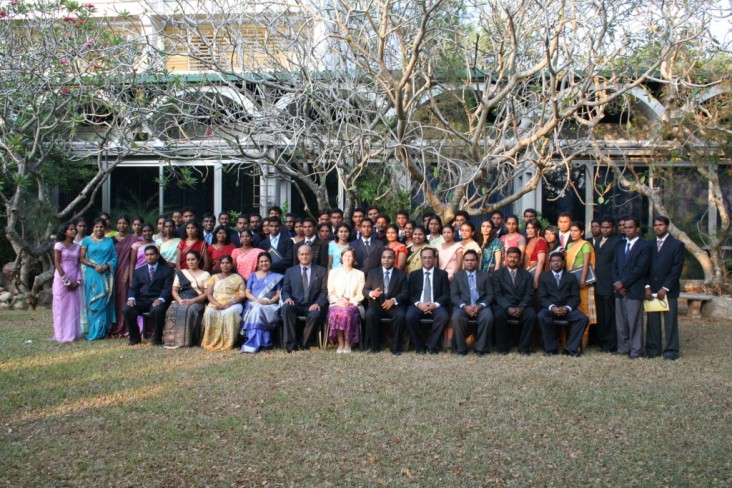
In a small town in Sri Lanka’s former northern conflict zone, a young man is writing big stories. From exposing drug dealers and errant local officials to reporting on epidemic outbreaks, Manoharan Das* is committed to helping local communities receive due justice and access to services through his tireless pen.
“When there is a social problem, very few people come forward to address it. I am one of them,” he says.
Not long ago in December 2009, Das, along with 20 other young journalists, won a USAID-funded scholarship to the Sri Lanka College of Journalism (SLCJ) Diploma Program in Colombo, some 350 kilometers from home. His childhood dream of journalistic distinction was coming true.
Since 2009, USAID has provided nearly 80 scholarships to aspiring journalists with the qualifications and drive, but not the means to attend the 12-month program, which combines classroom and field-based training in both print and electronic media. Media experts offer lessons and mentor students, who enjoy current affairs discussions and mingling with editors, on-air presenters and fellow students from different backgrounds.
Das not only acquired the skills and confidence needed to take on the challenging issues at the regional newspaper where he works (circulation: 20,000); he also acquired the credentials needed for greater responsibility.
“I used to work mostly at night, proofreading articles,” he said. “Occasionally, I was asked to write an article that came in late, but even then it had to go through multiple editors. After graduating from SLCJ, I was assigned the day shift and more responsibility because I had learned the technicalities of writing an article and collecting stories from the field. Now I report on a wide range of issues, and I also get to finalize my own stories.”
When child abusers were prematurely released from prison in his town, his article on the subject prompted police to launch a probe and file a case against the parties responsible. When tipped off that public hospital officials were looting resources, he was quick to investigate. His exposé prompted outrage and protest, leading to transfers of the corrupt officials, and court cases against them.
But for Das and many of his colleagues, life was not all roses and handshakes. Recent years have seen a sharp deterioration of press freedom and independence in Sri Lanka. Journalists reporting on corruption, human rights abuses and other sensitive issues have been subjected to murder, harassment, intimidation, abduction and physical attacks.
In its most recent annual ranking of world press freedom (2011-2012), Reporters Without Borders ranked Sri Lanka 163rd out of 179 countries. The newspaper Das works for is frequently targeted.
In spite of the risks, Das remains keen to search out wrongdoing.
“From fishermen to farmers to public officials, everyone has problems,” he says. “If these problems are not exposed, the perpetrators will continue to carry out injustices. If we report on those injustices, they will fear police action against them …. If we bow to pressure from threats, then no one will bring justice or address social problems. I look at these threats as a challenge to overcome … and I believe that even if you get beaten up, it is important to report the news properly and honestly …. It is my responsibility to do so.”
The diploma program helped Das not only chart a life course, but also make friends from other parts of the country, thereby building reconciliation, respect for diversity and hope for the future.
By helping energetic and principled young Sri Lankans like Das, USAID aims to empower communities, promote professional collaboration across ethnic lines and encourage dialogue.
*Name changed to protect privacy.







Comment
Make a general inquiry or suggest an improvement.